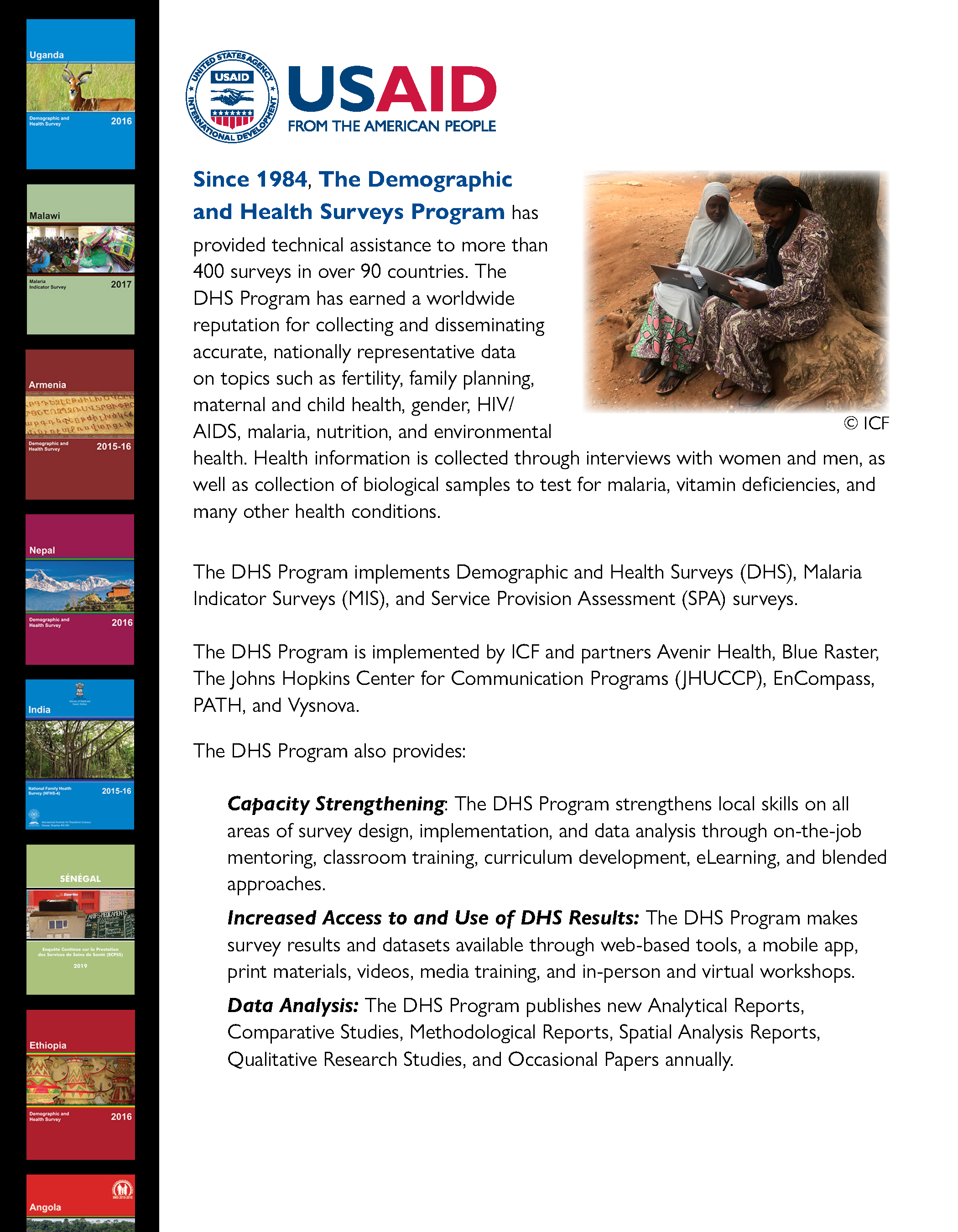Press Releases
New survey raises concerns about quality of health care services in Rwanda
Kigali, Rwanda. While almost all Rwandan health care facilities offer services for sick children and about three-fourths offer antenatal care and family planning, the quality of care needs improvement, according to the newly released 2007 Rwanda Service Provision Assessment Survey (RSPA) [English version] [French version]. Poor infection control, lack of client counseling, and frequent stock outs of essential drugs are the major concerns. These problems are found nationwide, according to the survey of 538 facilities.
Problems with infection control are found in all types of facilities from hospitals to dispensaries. Nationwide, only one-third of facilities have running water. In addition, only 22 percent of facilities, including only 64 percent of hospitals, have soap, an essential item for quality care. Latex gloves are widely available, however, which offers some protection for both health care providers and clients.
The absence of routine preventive care and counseling is another source of concern. The RSPA observed over 3,000 consultations to determine how often providers give essential information to clients and caretakers. Providers often fail to recommend condoms to clients with sexually transmitted infections, for example, and in 45% of the observed cases, providers did not warn clients that sexually transmitted infections increase risks of contracting and transmitting HIV infection. During sick child visits, providers regularly failed to advise caretakers about increasing liquids and foods during illness, and in only 25% of cases did providers tell caretakers about signs for immediate return. Similarly, during antenatal care, providers discussed the pregnant woman’s delivery plans in only 43 percent of consultations, despite a major government initiative to encourage more women to give birth in polyclinics.
Stock outs of essential medicines occur in many health care facilities. For example, almost three-quarters of facilities that treat people with HIV infection had stock outs of first-line antiretroviral medicines. Irregular use of these lifesaving drugs endangers people living with HIV and also can contribute to drug-resistant strains of the virus. Many facilities also reported stock outs of medicines for very common illnesses, such as malaria. Over 40 percent of facilities offering diagnosis and treatment for malaria had a stock out of first-line antimalarials in the six months before the survey.
The 2007 RSPA was implemented by the National Institute of Statistics of Rwanda (NISR) in collaboration with the Ministry of Health and with technical support from Macro International through the MEASURE DHS project which is funded by the United States Agency for International Development (USAID) and the President’s Emergency Plan for AIDS Relief (PEPFAR). The RSPA collected data from all public health facilities in Rwanda, including all hospitals, and conducted interviews with 1,935 health care providers and 3,187 clients, and observed 3,286 consultations.
Additional information about the RSPA can be obtained from the National Institute of Statistics, P.O. Box 6139, Kigali, Rwanda; Telephone: (250) 0830-6718, E-mail: lmunyakazi@statistics.gov.rw; Internet: http://www.statistics.gov.rw/
